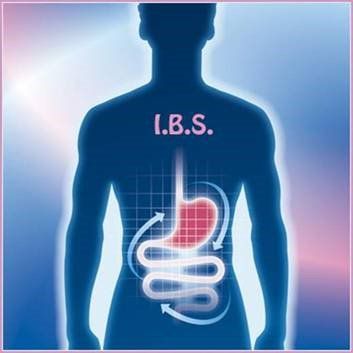This is an automatically translated article.
Fear can become the1 life-threatening enemy if the condition persists. According to experts, fear is known as an inevitable emotion of ours. However, it makes many people difficult in daily life. The article will provide more information as well as ways to help improve fear.
1. What is fear?
Fear is a natural, powerful, and primal human emotion. It involves universal biochemical responses as well as individual emotional responses. Fear alerts us to the appearance of danger or the threat of harm, whether the danger is physical or psychological.Sometimes fear stems from real threats but it can also stem from imaginary dangers. Fear can also be a symptom of a number of mental health conditions including panic disorder, social anxiety disorder, phobias, and post-traumatic stress disorder (PTSD).
Fear consists of two main responses to certain types of perceived threats: biochemical and emotional.
1.1. Biochemical Reactions Where Does Fear Come From? Fear is a natural emotion and a survival mechanism. When we are faced with a perceived threat, our bodies respond in specific ways. Physical reactions to fear include sweating, an increased heart rate, and high adrenaline levels that make us extremely alert.
This physical response is also known as the "fight or flight" response, where your body prepares itself to engage in fight or flight. This biochemical reaction could be an evolutionary development. It is an automatic response that is vital to our survival.
1.2. Emotional response Fear is highly personalized through emotional response. Because fear involves some of the same chemical reactions in our brains that positive emotions like happiness and excitement do. Feeling scared in certain situations can be seen as fun, like when you watch horror movies.
Some people who are normally adrenaline seekers may be those who thrive in extreme sports and other fear-inducing thrill situations. Others who react negatively to feelings of fear avoid fear-inducing situations at all costs.

Sự sợ hãi là phản ứng tự nhiên trước yếu tố gây đe dọa đến cá nhân
2. Symptoms
Fear is often associated with both physical and emotional symptoms. Everyone experiences fear differently, but some common signs and symptoms include: Chest tightness; chills; Dry mouth; nausea; arrhythmic heartbeat; short of breath; sweat; tremble; upset stomach,... In addition to the physical symptoms of fear, people may experience psychological symptoms such as being overwhelmed, upset, feeling out of control, or feeling that they are about to die.3. Causes of Fear
Fear is extremely complex. Some fears may be the result of experience or trauma, or may also represent a complete fear of something else, such as losing control. However, other fears can occur because they cause physical symptoms, such as: Fear of extremes can make you feel dizzy and sick to your stomach.Some common factors that cause fear include:
Certain objects or situations, such as: Spiders, snakes, heights, flying,... Future events. Imaginary events. The real dangers of the environment.
4. Types of Fear
Some types of anxiety disorders that are often characterized by fear include:agoraphobia. Generalized anxiety disorder. Panic disorder. Post-traumatic stress disorder (PTSD). Separation anxiety disorder. Social anxiety disorder. Specific obsession.
5. Diagnosis
If you are experiencing persistent and excessive feelings of fear, you should seek medical help. Your doctor may perform a complete physical exam and perform lab tests to make sure that your fears and concerns are not related to an underlying medical condition.Your doctor will also ask questions about your symptoms including how long you have had them, their intensity, and situations that tend to trigger the fear. Depending on your symptoms, your doctor may diagnose you with a certain type of anxiety disorder, such as a phobia.

Nếu sự sợ hãi kéo dài dai dẳng thì có thể bạn đang gặp vấn đề như rối loạn lo âu
6. Treatment
Repeated exposure to similar situations leads to familiarity, which can significantly reduce the fear response. This approach forms the basis of several phobia treatments, which depend on slowly reducing the fear response by making the fear familiar.Fear-based phobia treatments tend to focus on techniques such as: Systematic desensitization and exposure methods. Both techniques work with your body's physiological and psychological response to reduce fear.
Systematic desensitization: With systematic desensitization, you will gradually be led through a series of exposure situations. If you are afraid of snakes, you can spend the first session with your therapist to introduce snakes. In the following sessions, your therapist will guide you so you can see pictures of snakes, play with toy snakes and finally come face to face with a live snake. These activities are often accompanied by learning and applying new coping techniques to handle the fear response.
Exposure Method: The exposure method is based on the premise that your obsession is a conditioned reflex and you need to forget about it. You will be exposed to a large number of feared objects or feared situations over a long period of time in a safe, controlled environment until the fear subsides. For example, even though you are afraid of airplanes, you still have to fly.
The purpose of this method is to get you through your potential anxiety and panic to a place where you have to confront your fear and, ultimately, make you realize that you're fine. This can help reinforce the positive response inside you (you think you won't be in danger) to an event you previously considered scary (like being on an airplane) and ultimately put you in danger. overcome fear.
7. Confronting Fear
There are a number of activities you can do to help yourself cope with your daily fears. Such strategies will often focus on addressing the physical, emotional, and behavioral effects of fear. You can apply some of the following:Get support from people around. The people around you (family, friends) can help you manage your feelings of fear. Practice mindfulness. While you can't always stop certain emotions, keeping your mind steady can help you deal with your fears and replace negative thoughts with more productive ones. Use stress-reduction techniques like deep breathing, muscle relaxation, and visualization. Stay healthy. Eating right, exercising regularly, and making sure you get enough sleep each night are the best ways to get your fear under control.
Please dial HOTLINE for more information or register for an appointment HERE. Download MyVinmec app to make appointments faster and to manage your bookings easily.
Reference article: verywellmind.com












